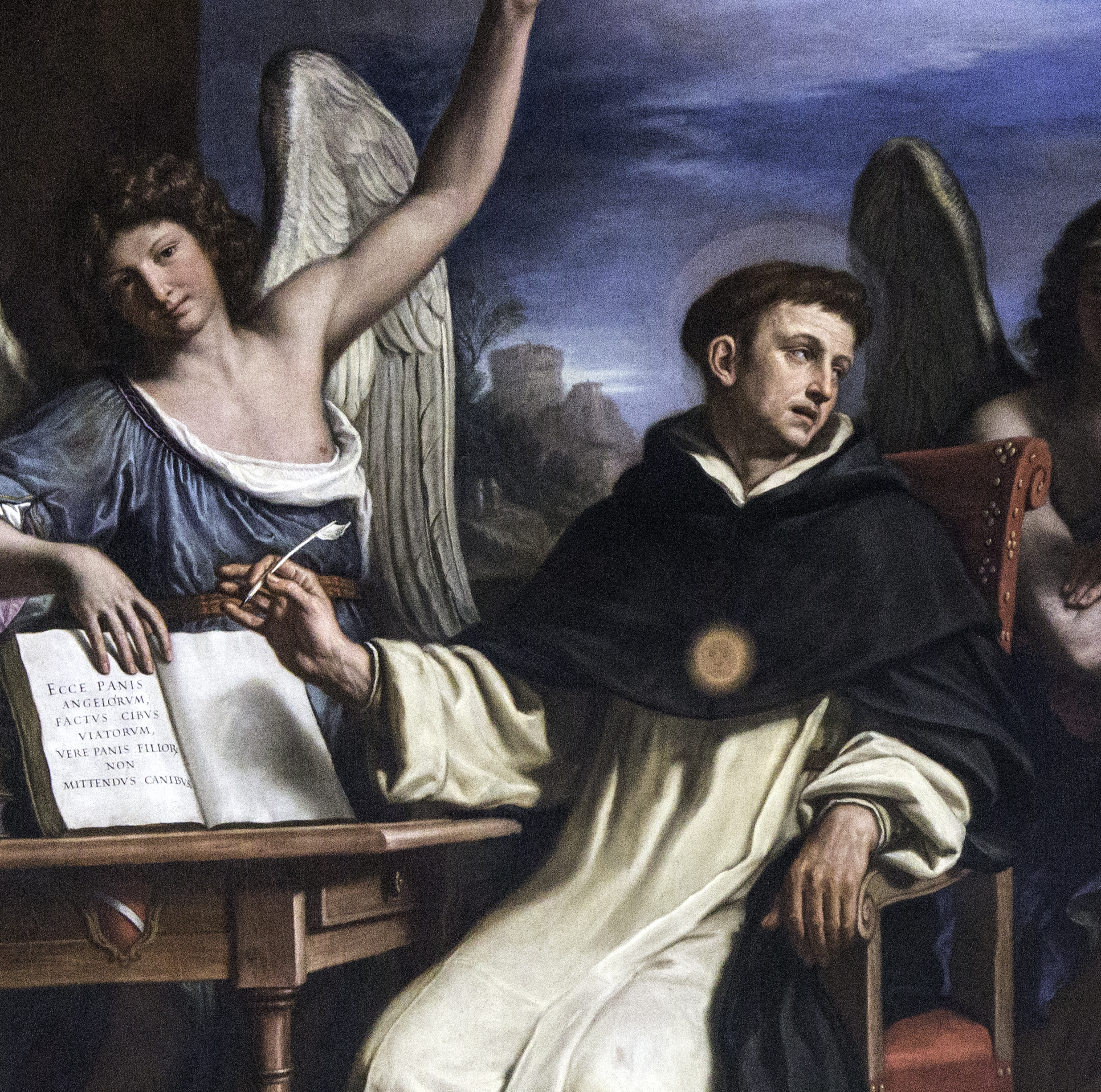Chapter 19: The Trinity Naturally Unknowable¶
The Trinity is a mystery essentially supernatural. St. Thomas 567 expounds the reason for this truth much more clearly than his predecessors did. By natural reason, he says, we know God only as Creator. Now God creates by His omnipotence, which is common to all three persons, as is the divine nature of which omnipotence is an attribute. Hence natural reason cannot know the distinction of persons in God, but only His one nature. In this argument we have one of the most explicit expressions of the distinction between the natural order and the supernatural order.
Hence it follows, as Thomists in general remark, that natural reason cannot positively demonstrate even the intrinsic possibility of the mystery. After the mystery is revealed, we can indeed show that it contains no manifest contradiction, but we cannot show, apodictically, by reason alone, that it contains no latent contradiction. Mysteries, says the Vatican Council, 568 cannot, by natural principles, be either understood or demonstrated.
Further. If reason alone could demonstrate, positively and apodictically, the objective possibility of the Trinity, it would likewise demonstrate the existence of the Trinity. Why? Because, in things which necessarily exist, we must, from real possibility, deduce existence. 569 If, for example, infinite wisdom is possible in God, then it exists in God.
In this matter, the possibility, namely, and the existence of the Trinity, theology can indeed give reasons of appropriateness, reasons which are profound and always fruitful, but which are not demonstrative. Theology can likewise show the falseness, or at least the inconclusiveness, 570 of objections made against the mystery. Here is a formula held by theologians generally: The possibility, and a fortiori the existence, of supernatural mysteries cannot be proved, and cannot be disproved, but can be shown to be appropriate, and can be defended against impugners. 571.
The analogies introduced to clarify the mystery rise in value when they are pointed out by revelation itself. Thus, when St. John 572 says that the only-begotten Son proceeds as God’s mental Word, we are led to think that the second procession is one of love.
- 567
Ia, q. 32, a. 1
- 568
Denz.: no. 1861
- 569
In necessariis ex reali possibilitate sequitur existentia
- 570
Aut falsae aut non necessariae. St. Thomas, In Boetium de Trinitate, a. 3
- 571
Possibilitas et a fortiori existentia mysteriorum supernaturalium non probatur, nec improbatur, sed suadetur et defenditur contra negantes
- 572
In the prologue of his Gospel
